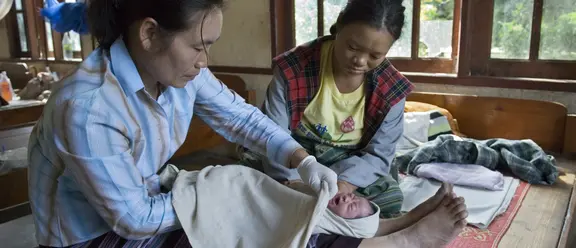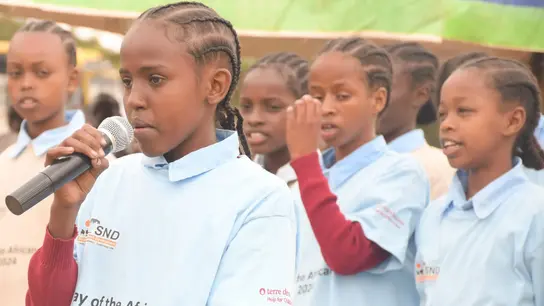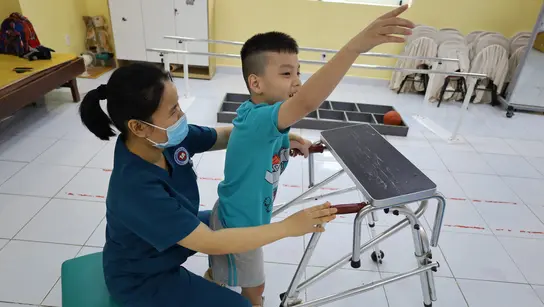Every child has the right to grow up healthy. Yet many children still fall victim to treatable diseases: measles, polio, tuberculosis, or AIDS. A child weakened by malnutrition or undernourishment has little resistance to these diseases. Support our projects so that we can promote and maintain children's health and nutrition.
Your donation helps!
Projects
Children's Health - Facts and Figures
Health is a child's right
“States Parties recognize the right of the child to the highest attainable standard of health and to access facilities for the treatment of illness and for the restoration of health,” states Article 24 of the UN Convention on the Rights of the Child.
Many countries are making efforts to implement this right of the child. In recent years, the number of children who die before their fifth birthday has fallen from over eleven million to around eight million. However, most children still fall victim to preventable or treatable diseases: diarrhea, measles, malaria, polio, tuberculosis, and AIDS. A child weakened by malnutrition or undernourishment is particularly vulnerable to these diseases.
The first 1,000 days are crucial
In the first 1,000 days – from conception to the age of two – nutrition is of central importance for a child's development. A lack of essential nutrients and energy from food can negatively impact a child's mental and physical development even during pregnancy. These children have weakened immune systems and are more susceptible to diarrheal diseases, pneumonia, and malaria. 3.1 million children under the age of five die annually from the consequences of malnutrition. Anyone who wants to sustainably improve the health of mothers and children must ensure their nutritional needs are met.
HIV transmission from mother to child
The risk of HIV infection is highest for children in the first 1,000 days of life. In more than 90 percent of infected children, the HIV-positive mother transmits the virus during pregnancy, childbirth, or breastfeeding. Even now, 370,000 children are infected with HIV every year – more than 1,000 children every day. If left untreated, more than half of them die within the first two years of life. With medical care and counseling, the risk of infection can be reduced to below five percent.
Demands and goals
The four main goals of Terre des Hommes are
- more financial resources for medical care and research from the international community
- medical care for those who need it most urgently
- affordable (free for children) access to effective healthcare
- Strengthening healthcare systems to make them resilient to crises and meet people's needs. This includes, for example, the training of midwives, nurses, and doctors, and ensuring their adequate remuneration to prevent them from leaving the profession.
Terre des Hommes calls for a sensible strategy to improve public health in poor countries and better coordination at the political level to direct funds to where they are needed: to families and children.



